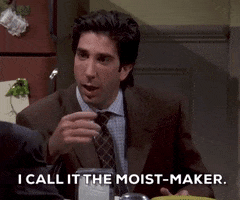Your eyes are highly complex organs and are thus very sensitive. They require constant hydration and lubrication to stay healthy and free from infection.
Dry eye syndrome causes you to experience annoying, sometimes painful, symptoms. And it can also lead to more severe problems later.
Dry eye gets triggered by many different sources, sometimes from multiple causes simultaneously. It is crucial to think about how the weather affects your eyes during the winter months.
The air becomes colder and holds less moisture in winter. That means the environment is actively pulling water from your eyes.
Cold winter winds can also cause dry eyes. Keep reading to see why the winter is driving your dry eyes, and find out what you can do!
Home Appliances to Survive Winter Dry Eye
If you notice your dry eye flaring during winter, chances are the weather is affecting you. This occurrence is common, and there are ways to combat seasonal dry eyes.
You should consult your eye doctor if winter weather is drying your eyes out. Any time a change in your vision occurs, there is a chance you have an underlying problem that you are unaware of.
You want to check with your eye doctor to ensure you do not have a more severe problem causing dry eyes. Dry eyes caused by environmental conditions are straightforward to treat.
If your eyes get irritated and inflamed in winter, there are a few things you can do. While you are waiting to visit your eye doctor, you can work to reduce your symptoms at home.
Using humidifiers, air purifiers, and the proper radiators can help reduce your symptoms. Humidifiers are a necessity for adequate air moisture in your home.
They passively mist the air, creating a more humid environment inside. Humidifiers give your eyes a helpful advantage against the cold, dry air of winter.
Using an air purifier inside can help remove potential irritants from the air. They are instrumental in the summer for removing airborne pollen.
But they are also helpful during the winter for collecting dust that can irritate your eyes. If you can, it is also beneficial to warm your home with heaters that radiate heat instead of blow hot air.
Convection-style heaters create wind in your home that contributes to dry eyes. More traditional radiators create a more ambient heat with less airflow.
How To Combat Winter Dry Eye
There are other ways to effectively fight dry eye in the winter that can help during any time of year. You should use the above appliances if possible. You should also seal drafts, keep clean surfaces in your home, wear sunglasses, and use seat warmers.
Any time you feel a cold spot in your home, look for cracks or crevices releasing cold, dry air from the outside. Sealing these leaks will prevent unnecessary airflow and will lower your heating bill!
Eye irritants in your home, like dust, can cause continual discomfort in your eyes. Regularly remove dust from surfaces in your home to prevent this irritation.
Use a damp cloth instead of a dry duster when you can. That way, the dust will cling rather than become airborne again.
Protect your eyes with the right sunglasses when you go outside. Use sunglasses that block UV radiation to protect your eyes and reduce wind exposure.
If you can, rely on seat warmers in your car to stay warm when driving. The less hot air blowing in your face, the better, so try and limit the amount of time the fans are active.
Other Dry Eye Care Tips
Of course, dry eyes don’t just happen because of the weather. If you target other sources of dry eye, you may find your eyes are more resilient to the elements.
You can use these tips to encourage your body to promote healthier eyes naturally:
Hydrate Frequently
Tears are primarily made of water, so it makes sense to be sure you are not dehydrated. When dehydrated, your body prioritizes other bodily functions over tear production, resulting in a lack of tears.
Maintain an Eye-Healthy Diet
Healthy eyes and healthy tear production rely on specific nutrients besides water. In particular, you want to eat plenty of omega-3 fatty acids, which are most often found in fish, eggs, and nuts.
Limit Your Screen Time
When the cold weather keeps you inside, it’s nice to distract yourself with your phone, computer, or TV. But, you blink less when using screens.
Limiting your screen time increases how much you blink, which hydrates your eyes. Also, you can take time to blink every hour or so when using screens to ensure eye hydration.
Reduce Your Caffeine Intake
You may like a hot cup of coffee or tea when it gets cold outside, but caffeine is dehydrating, which can cause dry eyes. Tea, chocolate, and other things also contain caffeine, so be sure to check the ingredients.
Quit Smoking
Smoking not only damages your eyes and body, but it can also irritate your eyes if the smoke blows back into your face. Quitting smoking is one of the most straightforward health decisions you can make.
Use Eye Drops
Rubbing your eyes is not only ineffective at relieving dry eyes, but it also damages your eyes and leads to irritation. Instead, try different eye drops to find the ones that work for you.
Thinner eye drops need more frequent application but don’t cause blurred vision. Thicker eye drops provide longer-lasting relief but may make it temporarily difficult to see after applying.
It is essential to take care of your eyes during the winter. Schedule an appointment at Ellis Eye in San Jose, CA, to learn more about dry eye care and see if you need dry eye treatment.





